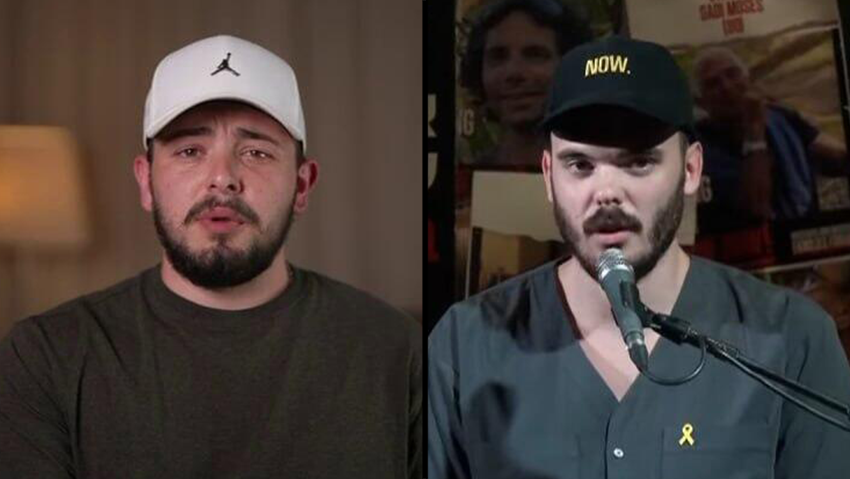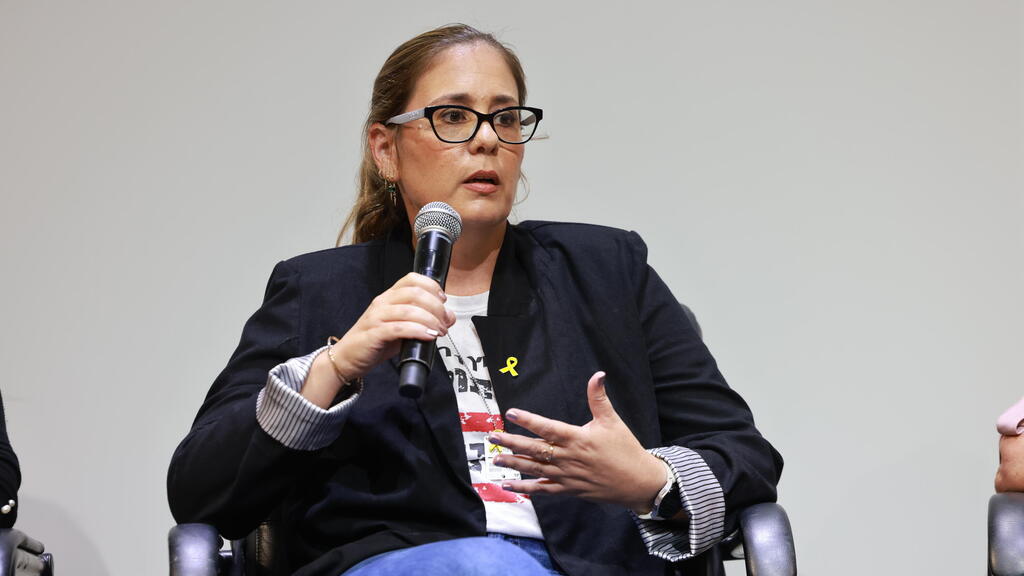Getting your Trinity Audio player ready...
"If I dreamt of home, it was a good night. I would wake up and say I can remember what my mother looks like," Almog Meir said of the long nights of captivity. "You are unable to sleep and you have nothing to look at when you are so homesick. No picture, nothing. Just the memories and thoughts."
Almog, along with Andrey Kozlov and Shlomi Ziv, were rescued in June in a daring special ops raid of Nueseirat in central Gaza. They were held captive by Hamas after being abducted during the October 7 massacre.
The three were lucky. They were kept in an apartment above ground and were together.
Now they are speaking, as part of "Voices from Captivity," a project to document their stories and the stories of hostages who returned, initiated by the Prime Minister's Office (PMO) and Government Press Office (GPO.)
"Our guard Mohammed had creative ways to punish us. He would do whatever came to his mind at any moment. If he did not like how we walked around the apartment, he would say 'you were up, fine, now you will sit for a week and not move. If you go to the bathroom, you must crawl there. I don't want you to stand.'
Almog said they often just wanted to punch him. "You disconnect from your feelings, from the humiliation. He would take this pen and tie our mouths around it. For days, we would have cuts in our mouths. Sometimes we were bound by chains and would have the rust wash off us when we showered. The lock on the chains would cut us to the bone."
He said he hoped those still held captive, did not lose hope. "It's easy to despair, but you have to find hope where you can. If I could tell them anything now, come to them in their dreams I would say hold on. Don't lose hope."
Andrey said the last month that they were held captive was the hardest. "Our guard was losing it. He would give us contradictory orders and punish us. Even if we spoke in whispers, he would gag us with the pen."
Once, in March, the terrorist was angry that Andrey turned off the radio without asking permission and threatened to take him to the tunnels. Another time he saw Andrey washing his hands with drinking water and ordered Almog and Shlomi to cover him with three heavy blankets. "He was always looking for reasons to punish us."
Nili Margalit was abducted after the terrorists murdered her father, and was freed in the hostage release deal in November. She told CNN that she was unable to return to her life, while hostages are still being held by Hamas. Margalit, a nurse by profession, helped the other captives that were with her.
She told Christian Amanpour that she was taken from her home directly to Khan Younis and into a tunnel. There she saw others from her kibbutz. The large group was divided and she and others were taken deeper underground. Many were hurt or sick and she used the little Arabic she had picked up in her work to convince the captors to provide basic medicine.
"There was no air, the smell was terrible, some people had asthma and it was harder for them to breathe. People were wounded and it was hard to breathe," she said. "People were wounded when they were abducted from their homes so the healing of their wounds in an environment without oxygen took a lot longer than it normally takes." She said the terrorists wanted to keep them alive so they did not abuse them physically, but they did take away their freedom. "It's a feeling of desperation," she said.
Nili said she knew all six of the hostages whose bodies were recovered earlier this week. They were fine when she left them. She accused Prime Minister Benjamin Netanyahu of deserting the hostages to their fate. "If he had agreed to a deal, I would not have had to go to six funerals," she said.
First published: 22:36, 08.29.24



